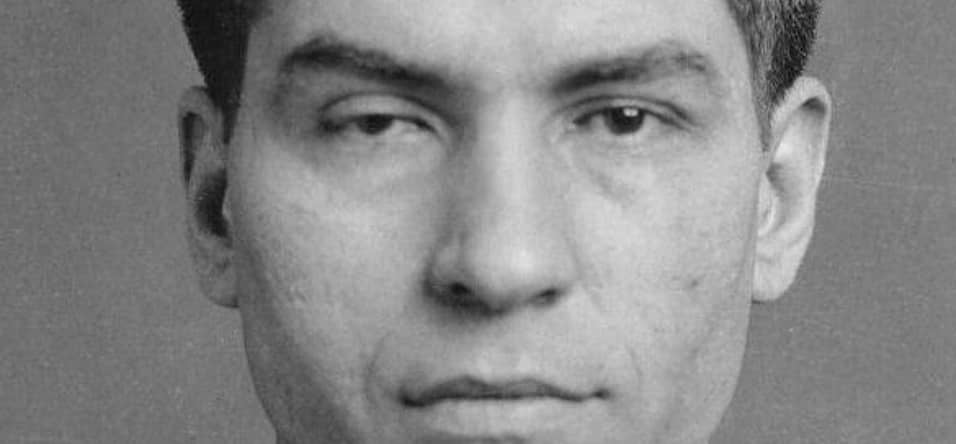
Charles “Lucky” Luciano's birthday
Charles “Lucky” Luciano, born Salvatore Lucania on November 24, 1897, was a key figure in developing organized crime in America.
His journey from a young immigrant in New York’s Lower East Side to a notorious Mafia leader was marked by strategic brilliance and notorious deeds.
Luciano was the key figure in creating the modern Mafia. He formed cooperative networks among criminal groups and established The Commission, a Mafia governing body.
Despite facing legal challenges and a prison sentence, his influence in the underworld remained significant until his death in 1962.
Luciano’s life, interwoven with crime and survival, continues to captivate as a crucial part of 20th-century American history.
Charles “Lucky” Luciano’s Childhood and Early Years
Born in Sicily and moving to New York City at a young age, Salvatore Lucania, later known as Lucky Luciano, experienced a challenging childhood.
His family settled in the Lower East Side, a melting pot of cultures and a hub for poverty and crime. These surroundings deeply influenced young Salvatore. He attended school sporadically, finding the streets more educational than the classroom.
His education was informal, learning from the rough urban environment rather than through traditional schooling.
Luciano’s early exposure to the streets taught him crucial survival skills. He quickly learned the importance of alliances and the art of negotiation, which is essential for life in a tough neighborhood. These skills proved invaluable in his later criminal career.
Although his formal education was limited, Luciano’s street smarts and natural intelligence equipped him to navigate the complex world of organized crime.
This unique blend of street education and innate cunning would eventually help him rise to the top of the Mafia hierarchy.
Luciano’s Rise During Prohibition
During Prohibition, Lucky Luciano’s entry into organized crime rapidly increased. He entered into the profitable world of bootlegging, an activity that thrived due to the nationwide ban on alcohol.
Luciano’s ability to think ahead and his inherent leadership skills did not go unnoticed, propelling him up the ranks of the Mafia. He became a key figure in reshaping organized crime in America. A notable part of his legacy was establishing The Commission.
This body was designed to mediate conflicts and allocate power among different Mafia families, a significant move in the criminal underworld.
Key Achievements and Legal Hurdles
Lucky Luciano made a big splash in the criminal world by helping to start the National Crime Syndicate. This group brought together the Italian-American Mafia and Jewish criminals, managing illegal activities all over the U.S.
Luciano was known for his innovative thinking, especially for working with people from different backgrounds in the crime world.
But Luciano’s life in crime also led to legal troubles. He was arrested several times, and in 1936, he faced serious charges related to running a prostitution ring.
However, his prison time was cut short because he helped the U.S. government during World War II. Luciano provided important information to the military and helped keep New York’s harbors safe from enemy threats.
These actions during the war showed how Luciano could adapt and use tough situations to his benefit.
Interesting Facts about Lucky Luciano
Birthplace and Name Change: Lucky Luciano was born Salvatore Lucania in Sicily, Italy, in 1897. He later changed his name to Charles Luciano, which eventually evolved into the nickname “Lucky.”
Survivor of an Attack: Luciano narrowly survived a brutal attack in 1929. He was abducted, beaten, and stabbed, and left for dead on a beach in Staten Island. This incident contributed to his nickname, “Lucky.”
Major Role in Developing the National Crime Syndicate: Luciano was a central figure in its development. This coalition included the Italian Mafia and Jewish mobsters, which had a significant influence on organized crime in America.
Involvement in World War II Efforts: During World War II, Luciano assisted the U.S. Navy by providing intelligence and ensuring the security of the New York docks. This effort reduced his prison sentence.
Deportation and Life in Italy: After his release from prison, Luciano was deported to Italy in 1946, where he continued to be involved in organized crime activities, albeit from a distance.
Prohibition Era Profit: Luciano capitalized on the Prohibition era by running a lucrative bootlegging operation, significantly boosting his rise in the criminal underworld.
Death and Burial: Lucky Luciano died of a heart attack in 1962 at Naples International Airport. His body was returned to the United States, where he was buried in St. John’s Cemetery in Queens, New York. Numerous figures from the world of organized crime attended his funeral.




